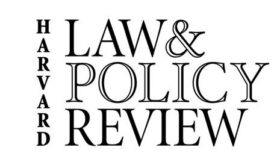By Charles McGonigal
Andreas Lubitz was medically unfit to work when he apparently crashed the Germanwings flight last Tuesday, according to a doctor’s note found in Lubitz’ apartment. Why? Nobody knows.
Germanwings, as his employer, would not know because German law allows these declarations to be written without a diagnosis or reason, to protect the patient’s privacy. I say “would not know,” because Germanwings appears not to have known about the declaration. The doctor cannot even share the declaration with the employer – just with the patient, to protect the patient’s privacy. Pilots are supposed to inform airlines of any unfitness for work, but airlines do not have any legal means in Germany to discover the information for themselves.
Article 8 of the European Convention on Human Rights establishes a right to privacy, and expressly includes medical data under its umbrella. It is easy to see the value of this protection as almost no one needs to know a person’s medical condition or history, and no government or private actor should be free to explore this data at will. Germany’s rules about the confidentiality of the unfitness declarations allow an employee to choose whether she wants to use the declaration to focus on health instead of work, and the lack of details allows her to avoid disclosing private medical data in doing so.
However, Article 8 allows exceptions for laws which serve public safety, and that exception needs to be applied to pilots. Pilots are charged with a unique responsibility: from takeoff to landing, the lives of everyone on the plane are in the pilots’ hands. To ensure that this responsibility is properly carried out, existing guidelines impose maximum flying hours and require sufficient rest periods between flights. An additional guideline requiring consent by pilots for their doctors to submit unfit-to-work notices to the airlines would further promote the public’s confidence in the pilots’ execution of this responsibility.
The need to prevent employers from digging through employees’ medical information is used as a standard justification for privacy rights, but courts should recognize the proper balance here. Even Germany’s infamously non-utilitarian Federal Constitutional Court should not find a problem in restricting the pilot’s right to privacy in order to protect the right to life of everyone else on the plane (including the pilot). Pilots choose their profession, and the immense responsibility this profession confers necessitates some limitations. A notification of the unfit-to-work assessment without the supporting diagnosis would provide sufficient information to airlines while minimally infringing the pilot’s privacy rights.
This policy does include the risk of a slippery slope. For example, an employer might request medical data based on the possibility of office employees endangering others while driving through the parking lot. However, even if employers made such frivolous requests and doctors answered them, the “fit for duty” answers to 99.9% of these situations do not disclose any private data about the employee. Also, if an employee cannot handle basic duties like traversing the parking lot, there probably is a safety interest in making the employer aware of that situation, and the employee has still not surrendered the privacy of any details of her medical history.
Thus, Germany and other countries should require airline notification of unfit-to-work assessments of pilots in order to protect the public interest.
